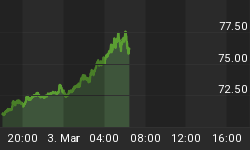Monday, February 18, 2008
Hope you're all enjoying a nice day off on President's Day.
Even though it's an island of merely 89 miles wide and 245 miles long, Taiwan is the world's 16th largest economy that holds the world's 5th largest foreign reserves. The island's located in East Asia off the coast of mainland China and southwest of the main island of Japan.
Taiwan is a creditor economy and is one of the top 10 trading partners of the U.S. in both imports and exports. Taiwan is also home to Asia's third-largest pool of private wealth, after China and Japan. It's the largest foreign investor in Vietnam and the 5th FDI (Foreign Direct Investment) source in China. Taiwan leads the world in computer chips supply and is a leading LCD panel manufacturer, DRAM computer memory, networking equipment, and consumer electronics designer and manufacturer.
Nonetheless, the Taiwan Weighted Index, a capitalization-weighted index of all of the common shares listed on the Taiwan Stock Exchange, had dropped 25% from the end of October to the January 23 bottom. The drastic decline, by all means, had to do with the stock market corrections around the globe. But, Taiwan's economy's also greatly influenced by politics, particularly its current administration's antagonistic political stand against mainland China. This could all change come March 22.
Taiwanese voters will cast their votes on March 22 for a new president. Presidential candidates from both parties have all promised higher priorities on economy and closer ties to China. The opposition party's candidate, who's leading by a large margin in recent polls, had detailed more aggressive measures to advance economic cooperation with China.
Many foreign banks have acquired Taiwan banks as an important part of their "Great China Strategy". In addition to the acquisition of Taiwan's Bowa Commercial Bank by Southeast Asia's largest bank, DBS, foreign banks, including Citigroup Inc., Standard Chartered PLC, ABN Amro Holding NV and HSBC Holdings PLC have already acquired Taiwan banks as they also seek to grow their services targeting the island's dynamic small and midsize companies, many of which have operations in fast-growing China.
A new administration is believed to be not only good for the international banking cartel, but also good for Taiwan's economy. Yes, it's still the economy, stupid. Technical signs of accumulation of EWT (Taiwan iShares) reflects this optimism on the upcoming presidential election.
For the first time since the market correction took place, EWT had closed above the downtrend trendline for the 3rd straight day on Friday (black circle on Chart 1 below). It did break through the trendline in mid January, but the closing price fell below the trendline (X mark). In addition, while the price of EWT had fallen about 20% since the end of October, the ROC (Rate of Change) had been making higher lows at major inflection points (blue trendline in lower pane).
And then, there's the gathering of the positive volume bars in February. The buildup of buying pressure means the builddown of selling pressure. And, that's self-evident in the intraday charts.

Chart 1
The declining highs (diminishing) of the red selling bars can clearly be noted on this 60-minute, 20-day intraday chart below (Chart 2). The above referenced technical improvement of the last 3 sessions can also be seen as EWT rallying a nice round bottom above $14.20, which appears to be a major battle ground for supply and demand (horizontal dotted line).

Chart 2
EWT's move above 14.20 on last Wednesday had negated whatever happened from January 23 bottom through last Tuesday (price action below the dotted horizontal line). That's what the intraday chart's telling us anyway. There should be little doubt that the accumulation of EWT shares is but a statistical fact. As long as EWT holds its head above this important support/resistance level, the rally should continue, at least through the election.
Good hunting!
















